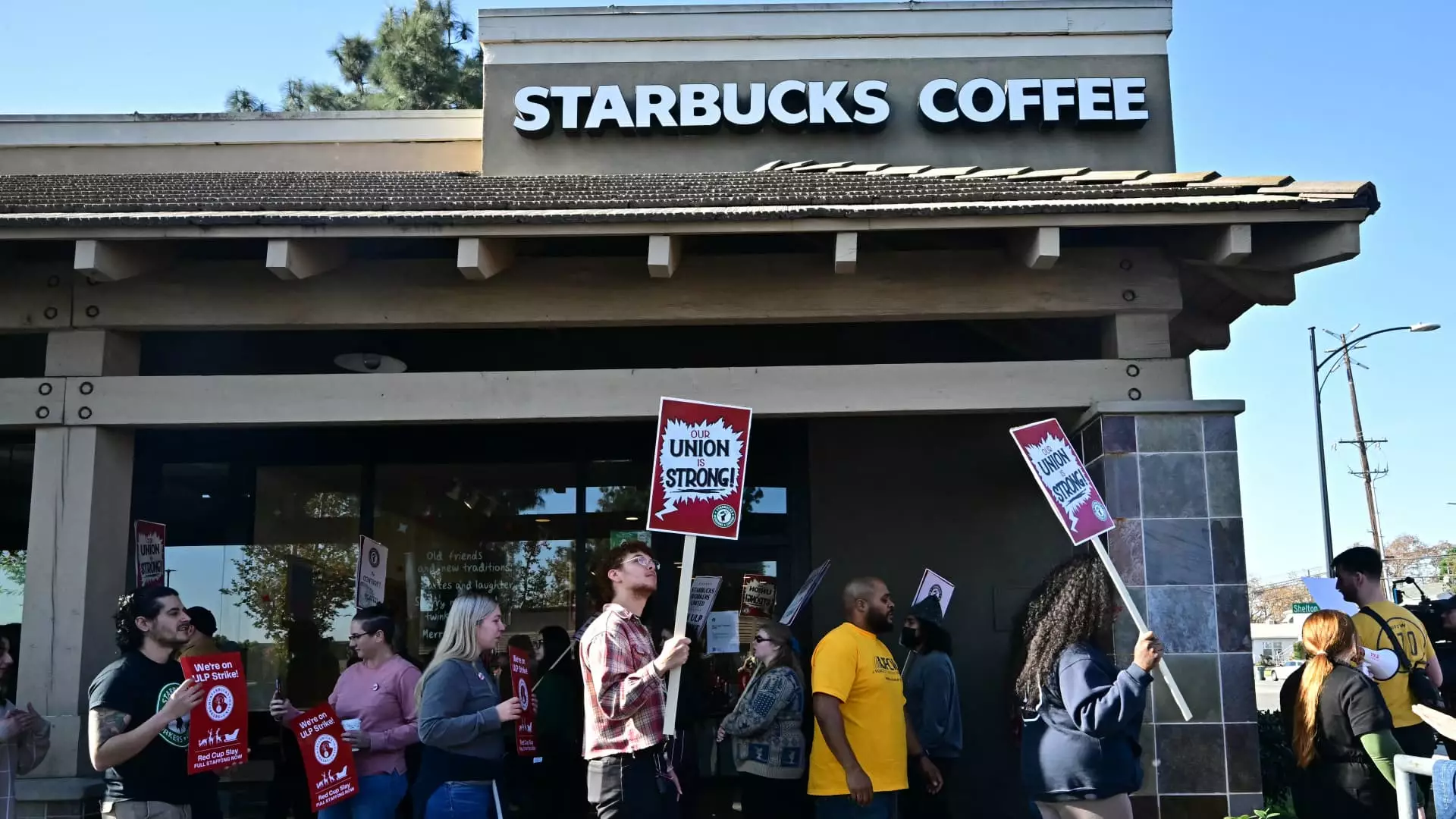In a significant escalation of labor disputes, a strike involving approximately 5,000 Starbucks workers at over 300 stores across 45 states is underway. This labor action comes at the onset of the company’s peak holiday season, which is traditionally characterized by increased sales and extended hours. Although this strike currently constitutes only about 3% of all Starbucks locations in the U.S., its impact is poised to resonate widely. Organized by the Service Employees International Union in collaboration with Starbucks Workers United, the strike highlights serious complaints regarding alleged unfair labor practices and the stalling of negotiations concerning a contract that would affect a vast number of employees.
The striking workers are calling for substantial wage hikes, seeking an immediate increase in their minimum hourly wage by as much as 64%. Over the span of a three-year contract, these employees are aiming for a total wage increase exceeding 77%. These demands reflect a growing sentiment among Starbucks partners who feel undervalued despite the company’s public statements asserting its appreciation for them. As Lynne Fox, the president of the Workers Union, eloquently stated, “Baristas know their value, and they’re not going to accept a proposal that doesn’t treat them as true partners.” This sentiment encapsulates the frustration brewing among baristas, who are advocating for better compensation and working conditions.
Starbucks has not remained silent amid the burgeoning strike. An internal memo from a company executive labeled the union’s demands as “not sustainable,” suggesting that the overall benefits package provided to workers is already generous. According to the company, employees working at least 20 hours a week can earn an average of $30 an hour when considering both pay and benefits. However, the company faces an uphill battle convincing its workforce that such wages are adequate. Sara Kelly, Starbucks’ executive vice president, emphasized the company’s readiness to resume negotiations, indicating that the union had previously walked away from the bargaining table. This assertion comes across as a conciliatory gesture yet may feel inadequate to those seeking immediate reform.
Starbucks recently experienced a bump in investor sentiment following the recruitment of Chipotle’s CEO Brian Niccol as the company’s new head in August. However, this uplift has been short-lived, as their stock has suffered alongside broader market declines in recent weeks. Niccol’s approach towards labor negotiations will be closely scrutinized, especially given his history at Chipotle, which included multiple settlements with workers prompted by the National Labor Relations Board. His commitment to negotiate with the union in good faith will be central to navigating this tense situation, but many remain skeptical about the sincerity of such promises.
The expanding Starbucks barista strike is an indicator of the shifting dynamics between labor and management in the retail sector. Workers are increasingly vocal about their rights and are unwilling to compromise on fair compensation and treatment. As Starbucks enters its crucial holiday season, the outcome of this labor dispute could not only affect its workforce but could also have lasting implications for the company’s brand image and operational strategy. Thus, this situation demands close attention as all parties strive for a resolution amidst rising tensions.

Leave a Reply